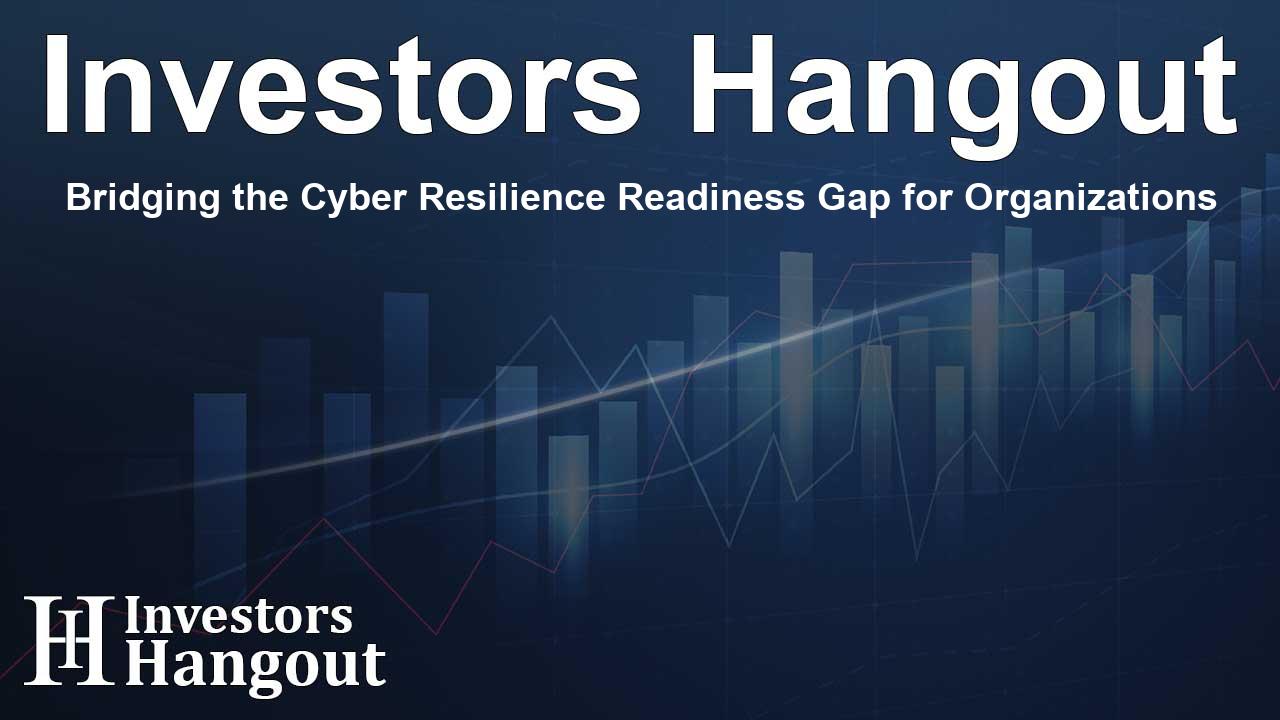Bridging the Cyber Resilience Readiness Gap for Organizations

Bridging the Cyber Resilience Readiness Gap for Organizations
In light of Cybersecurity Awareness Month, Index Engines has released significant findings about a crucial gap in the understanding of cyber resilience among organizations. Through a detailed examination involving over 600 IT and security professionals, the data unveils a stark contrast between familiarity with cyber resilience concepts and the actual capability to recover from cyber threats.
The Importance of Cyber Resilience
Cyber resilience is not just a buzzword; it’s now seen as a fundamental aspect of business stability. Despite widespread recognition, many organizations struggle with implementing effective recovery strategies. The findings illustrate that while most professionals acknowledge the importance of being cyber resilient, a staggering majority lack the necessary measures to ensure they can recover critical data and operations efficiently in the event of a cyber incident.
Key Insights from the Research
The research commissioned by Index Engines highlights several troubling trends in the industry. It reveals that many organizations do not grasp the true implications of cyber resilience:
- While 85% recognize cyber resilience as a top business priority, 55% admit to not fully understanding it.
- A striking 66% of organizations reported experiencing at least one cyber attack over the past year, with 44% facing multiple incidents.
- Cybersecurity efforts often fall short, with 54% of victims having paid ransoms, yet 92% of those still experienced data loss.
- Although 94% believe they align well with NIST standards, 82% faced repercussions from attacks.
- Alarmingly, only 4% can ensure a clean, recoverable copy of their crucial data.
“Recovery is the true measure of cyber resilience—and, based on this research, most organizations are lagging behind,” stated Jim McGann, Chief Marketing Officer of Index Engines. The essence of resilience lies in how swiftly an organization can bounce back post-attack, restoring operations and data effectively while maintaining clear communication with stakeholders.
The Compliance vs. Readiness Dilemma
One of the critical takeaways from the research is the distinction between mere compliance and true operational readiness. Many organizations focus on ticking boxes related to compliance standards rather than developing actionable recovery strategies. This gap emphasizes the need for organizations to instill confidence in their data integrity and their operational recovery capabilities during crisis situations.
Empowering Organizations with CyberSense®
In response to the evident need for improved cyber resilience, Index Engines offers CyberSense®, a leading solution designed to enhance organizations' readiness for recovery. With state-of-the-art technology and artificial intelligence, CyberSense detects signs of data corruption, particularly due to ransomware, with an impressive accuracy rate of 99.99%. This tool is essential in identifying reliable recovery points, thereby allowing organizations to restore unaffected data promptly.
Furthermore, CyberSense's proactive approach to analyzing data integrity aids in making informed recovery decisions, which significantly reduces downtime and potential damage to a business's reputation. It transforms the concept of compliance into substantial preparedness, ensuring organizations are not just aware but are equipped to respond effectively in real scenarios.
About Index Engines
Index Engines stands at the forefront of cyber resilience, focusing on creating infrastructures that support reliable and trusted data management. Their flagship product, CyberSense, empowers organizations to confront cyber adversities confidently and ensures rapid recovery to maintain business continuity in an ever-evolving landscape. To learn more, visit www.indexengines.com.
Frequently Asked Questions
What is cyber resilience?
Cyber resilience refers to an organization's ability to prepare for, respond to, and recover from cyber threats and attacks, ensuring continuous business operations even in adverse situations.
Why is recovery essential in cyber resilience?
Recovery is vital as it measures how quickly and effectively an organization can restore operations and critical data after an incident, minimizing disruption and potential losses.
What are the common gaps identified in cyber resilience readiness?
Common gaps include a lack of understanding of cyber resilience concepts, dependency on basic compliance instead of actionable strategies, and insufficient data recovery practices during incidents.
How does CyberSense® help organizations?
CyberSense enhances recovery efforts by leveraging AI to detect data corruption, enabling organizations to identify clean recovery points and minimizing overall downtime.
What role does compliance play in cyber resilience?
While compliance with cybersecurity standards is crucial, it does not guarantee real-world recovery capabilities. Organizations must focus on validated recovery strategies and genuine readiness.
About The Author
Contact Kelly Martin privately here. Or send an email with ATTN: Kelly Martin as the subject to contact@investorshangout.com.
About Investors Hangout
Investors Hangout is a leading online stock forum for financial discussion and learning, offering a wide range of free tools and resources. It draws in traders of all levels, who exchange market knowledge, investigate trading tactics, and keep an eye on industry developments in real time. Featuring financial articles, stock message boards, quotes, charts, company profiles, and live news updates. Through cooperative learning and a wealth of informational resources, it helps users from novices creating their first portfolios to experts honing their techniques. Join Investors Hangout today: https://investorshangout.com/
The content of this article is based on factual, publicly available information and does not represent legal, financial, or investment advice. Investors Hangout does not offer financial advice, and the author is not a licensed financial advisor. Consult a qualified advisor before making any financial or investment decisions based on this article. This article should not be considered advice to purchase, sell, or hold any securities or other investments. If any of the material provided here is inaccurate, please contact us for corrections.
